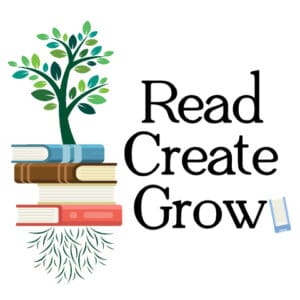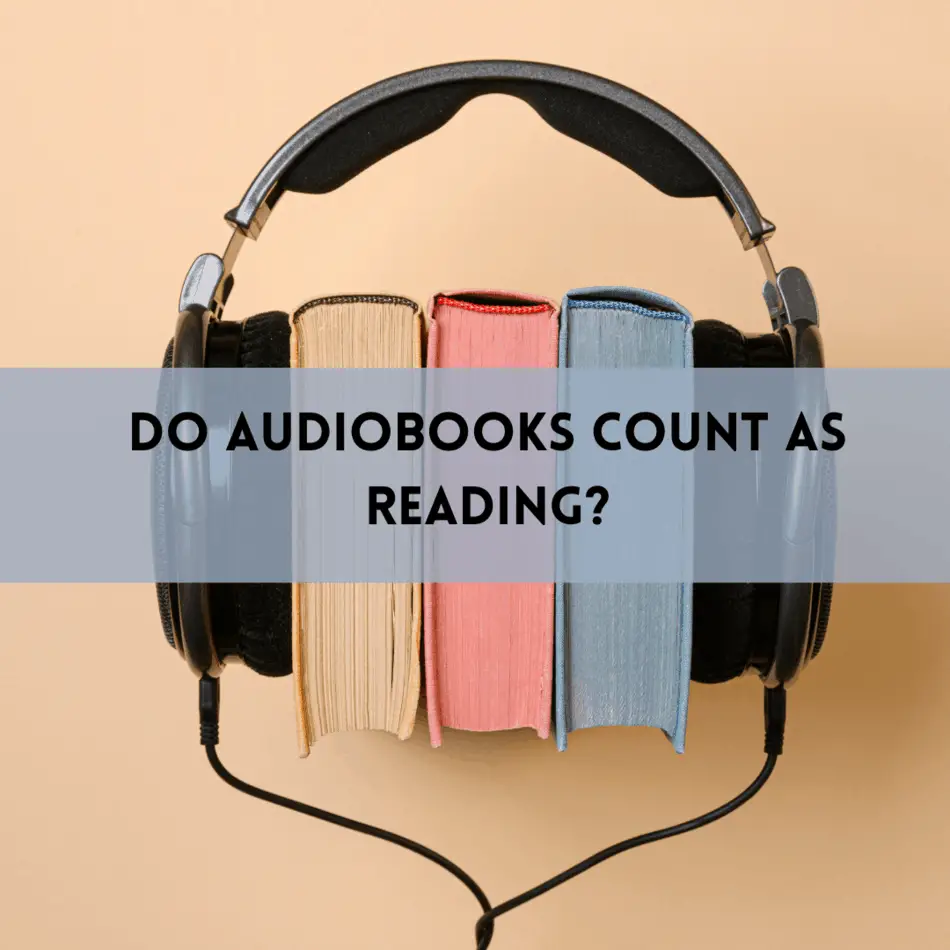As the owner of a neurodivergent brain and a personal victim of this question I am quite interested in this subject and hope to provide some clarity to parents and educators who may also be asking this.
Audiobooks are reading, if the purpose behind reading is to consume a story, learn information or new vocabulary, develop critical thinking skills, discuss theme or plot, retain information or use imagination. Discounting audiobooks as reading can be seen as ableist and detrimental to those with visual impairments, dyslexia, learning disabilities or neurodivergence.
Once you have determined your own purpose for reading, the mechanical trappings of how the information is conveyed become somewhat irrelevant. No one is saying the ability to decode words on a page is not important for a child to learn, but that is not the only thing to learn when reading. There are a number of other aspects to consider when thinking about audiobooks.
*This post may contain Amazon or other affiliate links. As an Amazon Associate I earn from qualifying purchases.
Are audiobooks “cheating” when it comes to reading?
As a child I had the ability to jump right into a story. It did not matter if I was in the middle of math class or anywhere else, “Have books, will travel” was my accidental motto. As an adult I find it harder to carve out time for reading at the exclusion of all other tasks that require my attention. I also better understand my own brain, and know that if I sit down to read a book, it could be hours before I re-emerge.
Listening to audiobooks allows me to keep one foot in reality and getting done at least some of the daily tasks my family requires, all while consuming great literature. And yet, when discussing with friends I will say that I read a great book, and then sheepishly catch myself and correct it with, “Well, actually I listened to it…” But why do we do that? Did I cheat in some way by listening to the book rather than reading it traditionally?
There are many sticklers for traditional books in the world; people who feel that if it a book is not consumed via your eyeballs through the medium of paper then you have “cheated” in some way and they would like everyone to understand this. For all the books these kinds of people have read, they still fail to understand that there are different perspectives in the world and what works for them may not work for other people.
To determine if audiobooks are “cheating” when it comes to reading, consider the purpose of reading the book. If the purpose is to consume the story or understand new information, think critically about a new idea, develop empathy or vocabulary, then audiobooks are not cheating.
This is after all, the function of literature isn’t it? To learn a new perspective, gain new clarity or transmit information? Why then does it matter if this was done through print or sound?
What are the pros and cons of audiobooks for kids?
| Pros of Audiobooks for Kids | Cons of Audiobooks for Kids |
| -Introduces books at a higher reading level | -Potential for mind-wandering |
| -Teaches critical listening skills | -Harder to go back in the reading or make notes |
| -Builds connection with parents when family listens together | -Dislike pacing or narrator voice |
| -Builds vocabulary skills | -No use of decoding if not paired with book |
| -Accessible for visually impaired, dyslexic or neurodivergent | |
| -Motivates struggling readers with more interesting stories | |
| -Allow parents openings to talk about challenging subjects | |
| -Spark interest in print reading |
How does the brain react to audiobooks?
According to the National Literacy Trust, audiobooks and traditional print require the same cognitive skills as well as the same ability to understand and remember information. In fact, a 2019 study demonstrated through brain mapping that the same areas of the brain are at work, whether the person is reading print or listening to an audiobook of the same story.

Each area of brain mapping is color coded according to meaning, with the color coded concepts displayed at the center.
Section A demonstrates parts of the brain reacting to word meanings through listening, while Section B demonstrates reactions while reading. The data shows that the brain reacts and comprehends similarly regardless of medium.
How do audiobooks build better reading skills?
If you have a child who is struggling to read (remember, this is different than a reluctant reader, which I wrote about here) a really great option is to pair an audiobook with a print book.
Engaging multiple senses in the process of reading can aid your child in the process of learning to read. When children read they are decoding the print by sounding out words and letters. This involves phonics, or understanding which letters make which sounds. Pairing an audiobook with print allows kids to do this simultaneously, thus reinforcing what they have just heard and understood.
Decoding is more than just being able to sound out a word. A child that spends all their time decoding and struggling with meaning will burn out on trying to read and may find the process overwhelming or frustrating. By allowing your child to put slightly less mental effort into constantly decoding words, your child can spend that mental energy on comprehension.
Building confidence and interacting with the world of literature is also an important part of reading. Audiobooks allow kids to keep up with the stories their friends are reading in a manner that makes them accessible. It can be disheartening for a child to know all their friends are reading Percy Jackson and they are still struggling to get through Junie B. Jones. A child that is embarrassed by their reading level is unlikely to continue to pursue reading.
We already know that young kids who are read to have more words and a better vocabulary (read more about the reading gap here), so if reading aloud to kids is good, why would we prevent them from listening to audiobooks? Is it better to say to a struggling reader, sorry no access for you because audiobooks are different and bad? Of course not! Let kids listen to their books.
Who are audiobooks best for?
An audiobook can be a fun, involved and educational experience for any child, teen or adult, so it isn’t really fair to say who these books are “best” for. However, audiobooks are a great choice for children struggling with a visual impairment or a learning difficulty, such as dyslexia, among others.
In fact, a study from 2011 showed a positive correlation for students with learning disabilities who were allowed to listen to an audiobook while following it in print, compared to the control group who only read the book. Students in both groups of the eight week study showed improved reading fluency, however students with access to both text and audio showed significant improvement over the group with text only.
Audiobook neigh sayers frequently look a this study and say “Ah ha! The mind wanders!” However, the biggest benefit to listening to audiobooks is allowing your mind to listen to a book while your body is busy at a task. By that study’s own admission, the authors wonder if there might be a positive correlation between memory and physical activity, yet they required participants to sit still and stare at a blank wall while listening to an audio recording, and then docked points for mind wandering.
Active kids, teens and adults may find traditional reading too “sitty” and can benefit from physical movement while listening to a book. This can be actual physical activity, drawing or coloring, cleaning or folding laundry.
Where are the best places to get audiobooks for kids?
There are many wonderful places to acquire audiobooks for kids. Some need to be purchased, but many are available for free. Below is starting point for you to look into.
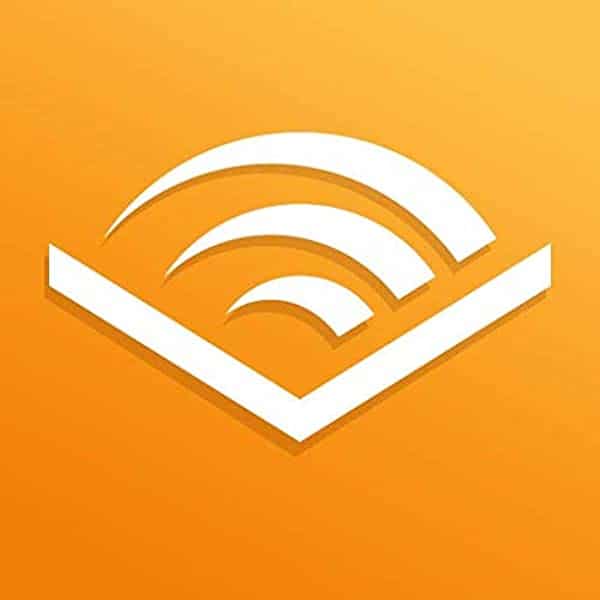
Audible
Audible is a subscription service for audiobooks. You pay a monthly fee which varies by membership level, and get a certain number of book credits that can be used on books of any price.
There are a lot of benefits to this program. You get a credit every month which you can use right away or stock up. You can use it on books that are more expensive than the fee you pay and the book is yours to keep. If you discontinue your membership you still own the items and can can always listen to them. Plus you get access to book sales and discounted prices on all the other books they have. There are a lot of great books that you can only get through Audible, and they have expanded into podcasts and original productions.
The downside is of course that this is a monthly service, so there will be a fee as long as you keep it up.
The base level option is $14.95 per month which gets one book credit a month. This is actually the plan I have had on and off for years and I really like it. The app is easy to use and stores all your audiobooks
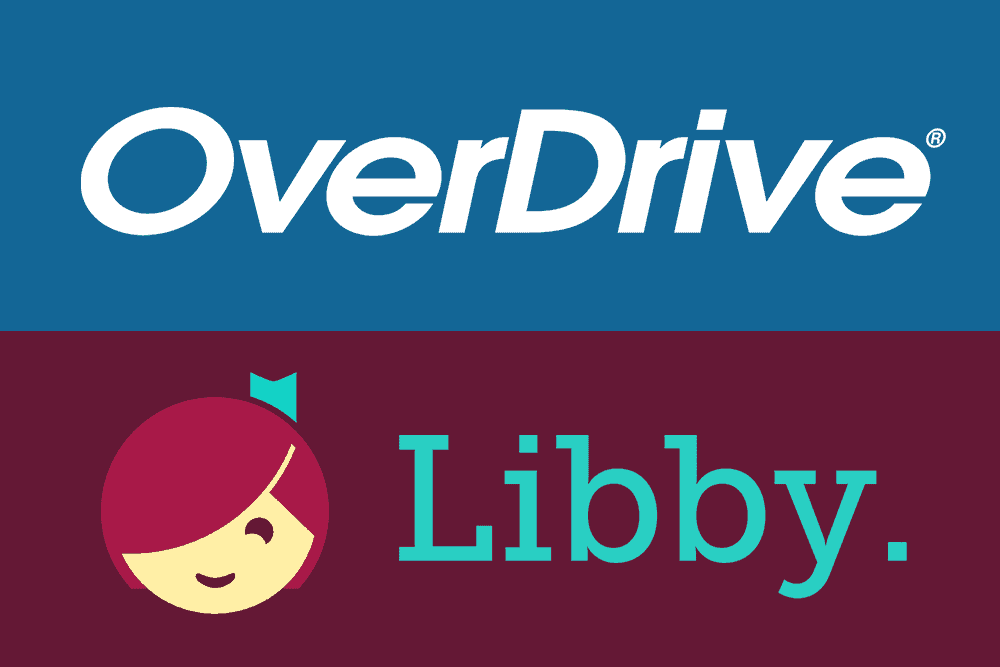
Libby by OverDrive
Previously just OverDrive, now with a new interface called Libby, this is an app you can use to access hundreds of thousands of digital materials. The app is free and access is free but you will need a library card.
The main benefit of Libby is that everything is free. You can access eBooks which you can read from your phone or send to your Kindle, audiobooks, magazines, picture books, basically any kind of digital resource is available. You can also upload multiple library cards so you could potentially have access to a larger number of items.
There are a few downsides to be aware of however. Libraries own digital materials in the same way they own physical copies. There are not endless supplies just because it is digital. So you will be restricted by what your library owns and how many copies they have, so there may be wait times for some materials and you can only have them for a certain amount of time, like a library book.
Read more about Libby and Overdrive here, or download the app.
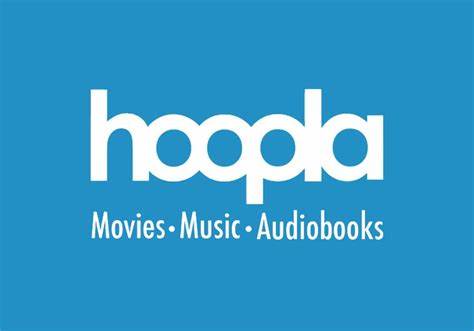
Hoopla
Since you got your library card out to download Libby, you might as well go ahead and add Hoopla as well. Hoopla is available as an app and can be cast to your TV. It allows you to download ebooks, audiobooks, movies, TV, music and comics.
If you have a library card for a large library system Hoopla is an amazing choice because patrons frequently forget about it in favor of Libby. This means everyone is over on Libby waiting on the waitlist for super popular items and you’re just swooping in and snapping them up on Hoopla with no waits.
Of course the downside is that like with other library materials, you don’t own it, may have to wait for it and can only have it for a certain amount of time.
This is a great option for hard to get titles, and pairing ebooks with audiobooks.
Read about Hoopla here.
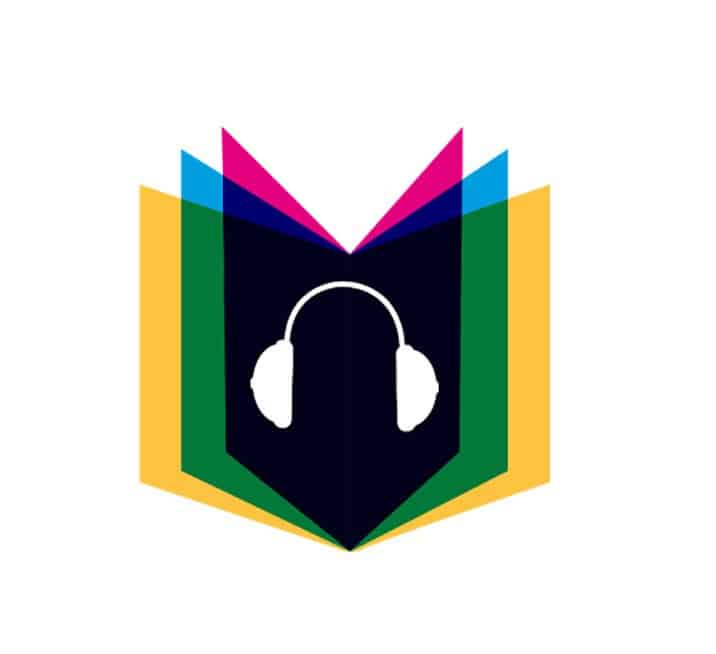
LibriVox
LibriVox offers free audiobook recordings of classic literature, poems and fairy tales, all things that are part of the public domain.
There are a lot of options here and sometimes multiple versions of the same work, read by different people. They have also begun including works in non-English languages.
The downside to this service is that the books are classics, so you won’t find the latest Rick Riordan book here. The books are also read by volunteers, rather than professional readers. Also, The website is a little confusing but the app works well.
This is a great choice though if you are looking to expose your child to classic literature and the library waitlist is too long.
Check out LibriVox online or go to the app store on your phone or tablet.
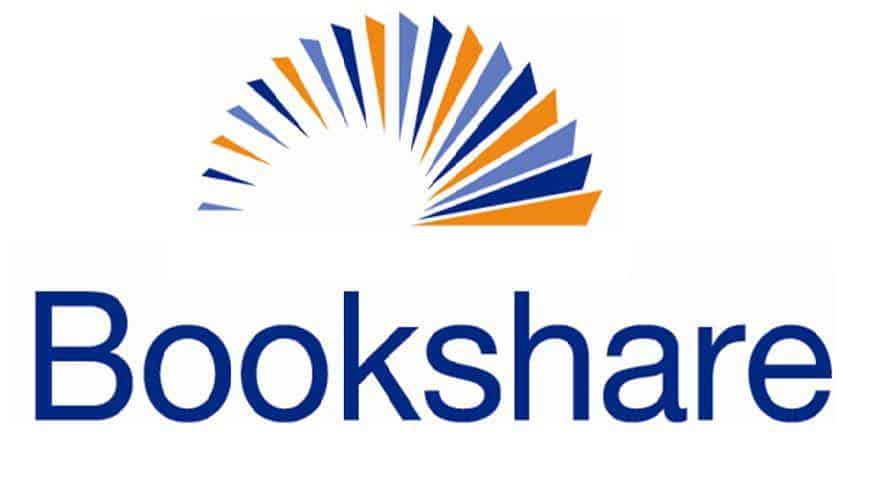
Bookshare
Bookshare is a unique program as it requires submitted documentation of a disability to qualify to use their program. Qualifying disabilities include perceptual disability, visual impairment or a physical disability that affects the ability to read. Dyslexia or other learning disabilities may qualify.
The main benefit of the program is that it provides free books for students who qualify. Non-students can access the program for $50/year. Participants have access to over a million titles in whatever format is beneficial for them.
The downside of course is that you must qualify under some stringent guidelines, as the program is supported by the U.S. Department of Education.
Find out more about Bookshare here.
*This is, of course, a general guide and is not meant to diagnose. If you have concerns about your child’s behavior or development please be sure to speak with a medical professional, your child’s physician or teacher.
